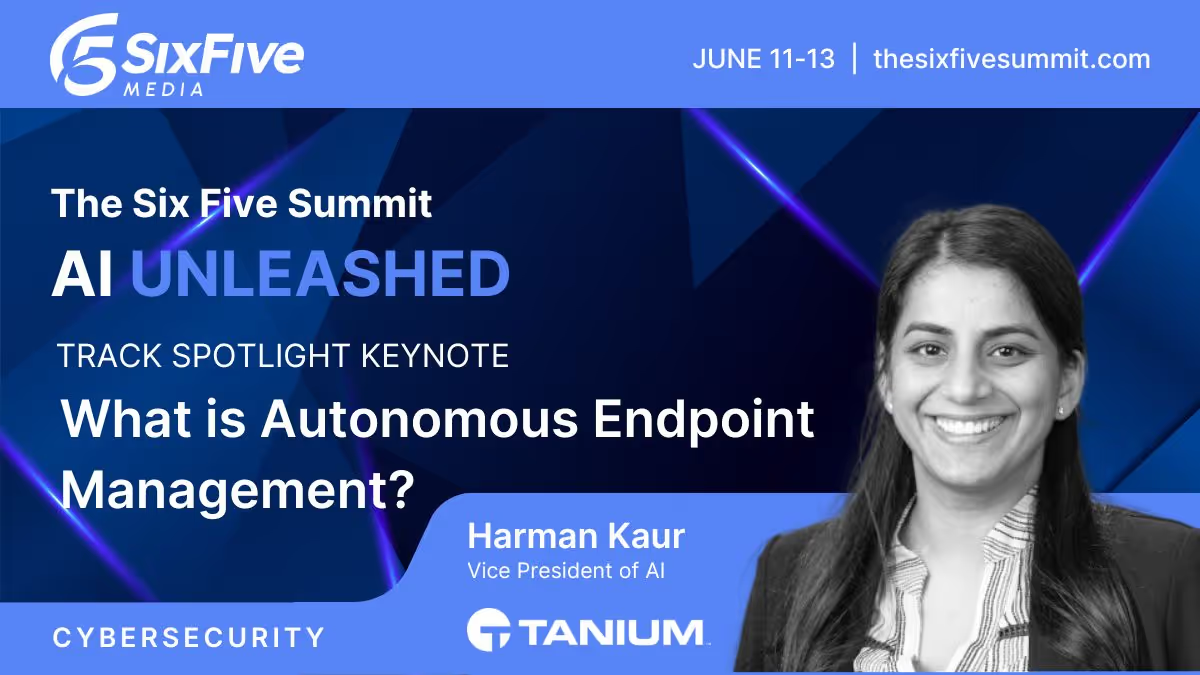Eliminate the Fear of Change with GenAI-Driven Automation
Tony Anter, DevOps Evangelist and Mark Schettenhelm, Lead Product Manager at BMC Software join Steven Dickens to share their insights on how GenAI-driven automation is transforming business operations, making the transition smoother and less intimidating for organizations.
GenAI is the future of business, and it's happening now with Six Five Media host Steven Dickens at BMC Connect and BMC's Tony Anter, DevOps Evangelist and Technology Solutions Director, and Mark Schettenhelm, Lead Product Manager, for a conversation on how GenAI-driven automation is revolutionizing business processes and easing the fear of change. Their discussion covers:- The impact of GenAI on automation and how it's changing the landscape for businesses- Strategies businesses can adopt to seamlessly integrate GenAI into their processes- Overcoming challenges associated with the adoption of new technologies- Real-world success stories of businesses leveraging GenAI-driven automation- Insights into future trends and how companies can prepare for the next wave of technological innovationLearn more at BMC. Watch all our coverage from BMC Connect 2024 here and be sure to subscribe to our YouTube channel, so you never miss an episode.
Steven Dickens:
Hello, and welcome to another episode of Six Five On The Road at BMC Connect. I'm your host, Steven Dickens. And I'm joined by Mark and Anthony from BMC. Hey guys, welcome to the show.
Tony Anter:
Thanks for having us, Steve.
Mark Schettenhelm:
Thank you.
Steven Dickens:
So tell the listeners and viewers what you do for BMC. Let's get started. Let's start with you, Anthony.
Tony Anter:
So I'm a DevOps Architect and Evangelist for BMC, so my role is I go and talk to companies about what's the art of the possible? What can they do with the BMC suite of tools and how can they make working a delight? That's really what I do. I guess I'm a seller of happiness, Steve.
Steven Dickens:
A seller of happiness. I love that. And you've got a lot to follow up with, but I know you're a seller of happiness. Come on, you've got to tell.
Mark Schettenhelm:
Well, I'm the Lead Product Manager and I work with Code Pipeline, Code Insights, and Abend-AID, and I'm focused on the developer experience. Anything I can do, well, a seller of happiness, but to work towards making their lives better and things easier for those developers.
Steven Dickens:
So topic of the session today, we're talking about it a little about it off camera. These are systems of record, they're vital to the business, they typically are the business for most of the shops that we're talking about. What challenges do you see those teams having? The fear of change, we're talking about it off camera. A lot of this code's critical, mission-critical, running the business. How are you seeing that manifest? Is it COBOL's fault? Is that just the way the system's structured? We'll go to you first, Anthony.
Tony Anter:
Yeah. I think, well, so to start on the COBOL part, I think COBOL gets a bad rap.
Steven Dickens:
I'm with you there.
Tony Anter:
I think that COBOL is a fine language. I think everybody wants to put all the sins of the past into COBOL.
Steven Dickens:
For me, it's French versus German versus English. It's a language, right?
Tony Anter:
Yeah, you learn. As long as you understand your patterns and how to basically engineer a system, whether I'm in Go or I'm in COBOL or I'm in Node or I'm in whatever, you're creating something, right? The choice of clay shouldn't matter. So-
Steven Dickens:
I've not heard that one. I'm going to steal that one.
Tony Anter:
Yeah. I give you rights to it. But I think the fear of change thing, a lot of companies, these are their critical systems. These are the core of their business. This is where the money's at. And they're scared to make changes because the people that used to understand these systems backwards and forwards are leaving. And frankly, it's no way to live. You can't be scared of your system and your technology. You need to dictate to your technology, don't have the technology dictate to you how you do things. And just frankly, I think that's where BMC comes in and helps companies bridge that skills gap that they have between the next generation of people coming in and the ones that left. So what I'm hearing a lot is, "How do I manage this?" Because companies can't stay pat, because these systems are too important, but they can't just blindly make changes and hope it works. They have to be cognizant of what they're doing.
Steven Dickens:
So coming to you, Mark, if that's the vision and that's where customers are, how are you engineering the BMC products to kind of address that vision?
Mark Schettenhelm:
Right. As I said, I look at that developer experience and I live with that in that fear they have, and I understand it because I was a developer.
Steven Dickens:
Yep.
Mark Schettenhelm:
So we look at ways that I could basically do magic. Could I run the application and have it magically just chart it out and show exactly all the database calls and program calls, all that? Could I have the code charted out so I can take a complex section of code and chart it out and say, "Oh, this does this and this does this"? It's taking what could be hundreds of thousands of lines of code, or millions, and making it clear and concrete in a visual way and now with text, because some people are visual, like myself, and other people have to have it described.
Steven Dickens:
So you've got to have a UI that adapts.
Mark Schettenhelm:
Right. And we do it in many different ways to work with how that developer likes to understand the code.
Steven Dickens:
So guys, it's 2024. We're four minutes in and we've not talked about AI.
Tony Anter:
So yeah, I'm shocked.
Steven Dickens:
And, I mean, this has got to be a record somewhere, right?
Tony Anter:
I'm shocked.
Steven Dickens:
So all joking aside, we're starting to see gen AI come across the entire developer landscape. Code assistance, we're seeing that come holistically across. How are you seeing that coming particularly into the mainframe? I'll go to you first, Anthony. How are you seeing that with some of the customers? And then we'll go to you, Mark, around how you're embedding it into some of the solutions.
Tony Anter:
So I think the mainframe is leaning into AI even more than you're seeing on some of your distributed and cloud systems. I think the mainframe is really looking at AI as a tool that can be used in the future to help with what Mark was just describing, which is I have millions of lines of code that I need to understand, that I need to parse. And even if the guy who wrote it back in the day is still there, it's now become so complex and had so many layers put on top of it that even they probably don't understand.
Steven Dickens:
And, Mark, that's the key point. We've seen the BMC AMI assistant announcements while we're here at the show. I think from a product point of view, and Anthony touched on it, that explanation of code, maybe that original developer's not there, maybe it's coming to a new team. Talk to me a little bit about how you've seen that from a product point of view.
Mark Schettenhelm:
Right. And that's something where, like I said, we've had the charting and we would have tables and we'd have ways to explain it, which we've had great success with, but for the last 20 years I've had developers say, "Could you explain to me what it does?" And I would kind of laugh at that because that's impossible. How could you go in and explain it? But in the-
Steven Dickens:
Lines of COBOL, pull apart that and understand-
Mark Schettenhelm:
And tell me the business logic, what it is and how it works. Impossible.
Steven Dickens:
And those people have typically left the organization.
Mark Schettenhelm:
Yeah.
Tony Anter:
Yeah.
Steven Dickens:
The people who wrote the code 30 years ago have gone.
Mark Schettenhelm:
I need that quick summary of what it does. And then over the last two years, last year, it was like AI was the solution. So we didn't take AI and say, "Oh, what can it do?" We started with that problem. And that was the one remaining problem I had. And AI magically can deliver what they've asked for.
Steven Dickens:
Well, I think, Mark, that's a fantastic way for us to wrap up. AI magically doing what customers ask for. I've not got a better way to wrap up this. Guys, it's been great having you on the show as always. Thank you very much.
Tony Anter:
As always, Steve.
Mark Schettenhelm:
Thank you.
Tony Anter:
Thank you.
Steven Dickens:
You've been watching another episode of Six Five On The Road, coming to you from BMC Connect. Please click and subscribe and do all those things for the algorithm. Check out the additional content from the show, and we'll see you next time. Thank you very much for watching.
MORE VIDEOS
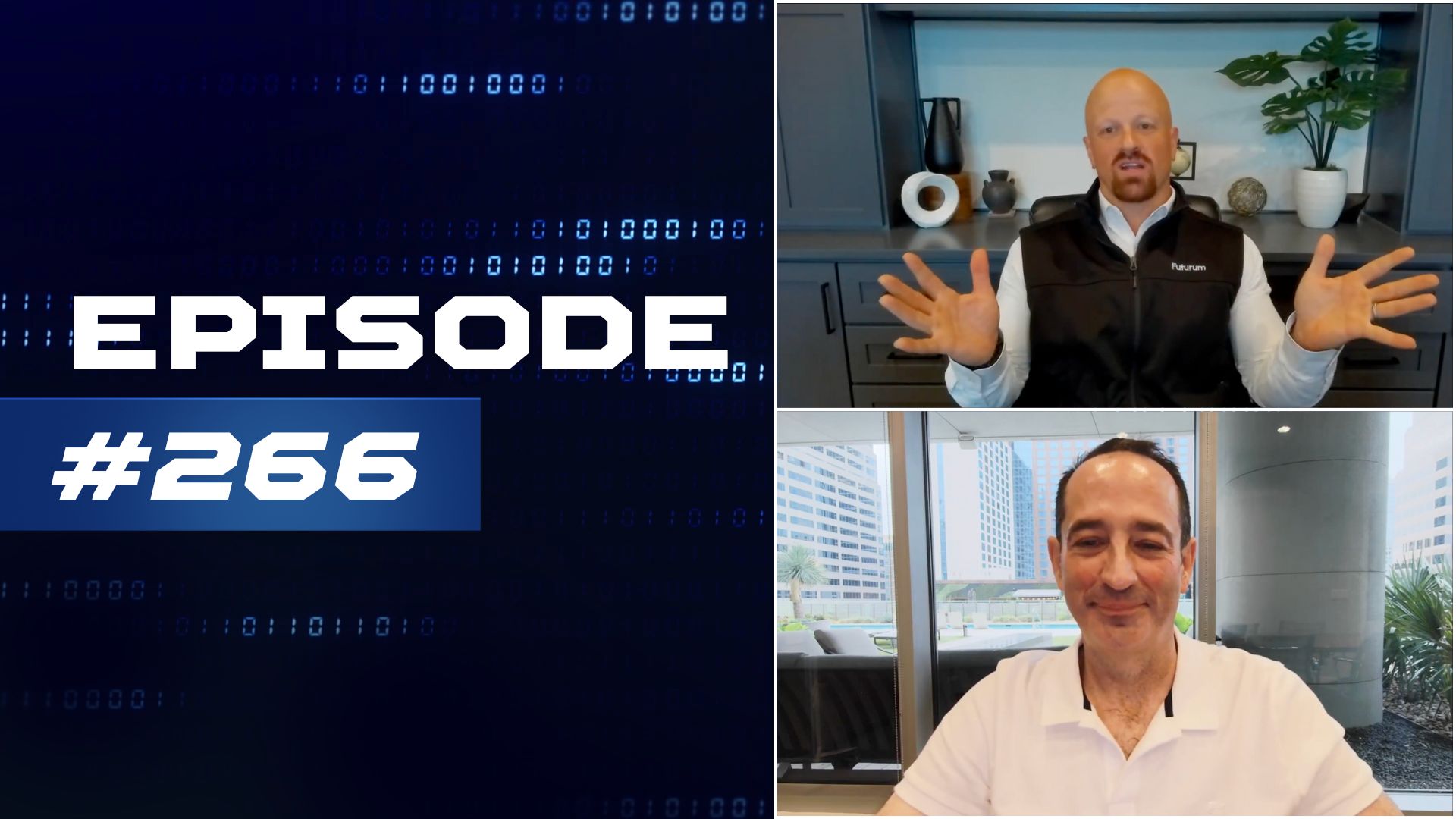
The Six Five Pod | EP 266: Tech Giants' Chess Moves - From Meta's Hiring Flex to Oracle's Cloud Surge
On episode 266 of The Six Five Pod, Patrick Moorhead and Daniel Newman dive into the latest tech news and trends. They discuss OpenAI's talent poaching by Meta, the impact of AI on job markets, and Tesla's robotaxi rollout in Austin. The hosts debate the merits of autonomous vehicles and their potential societal impact. They also analyze recent market movements, including Oracle's $30 billion cloud deal and HPE's acquisition of Juniper Networks. The episode provides insights into the evolving AI landscape, its economic implications, and the resurgence of legacy tech companies in the new era of artificial intelligence and cloud computing.
Other Categories
CYBERSECURITY
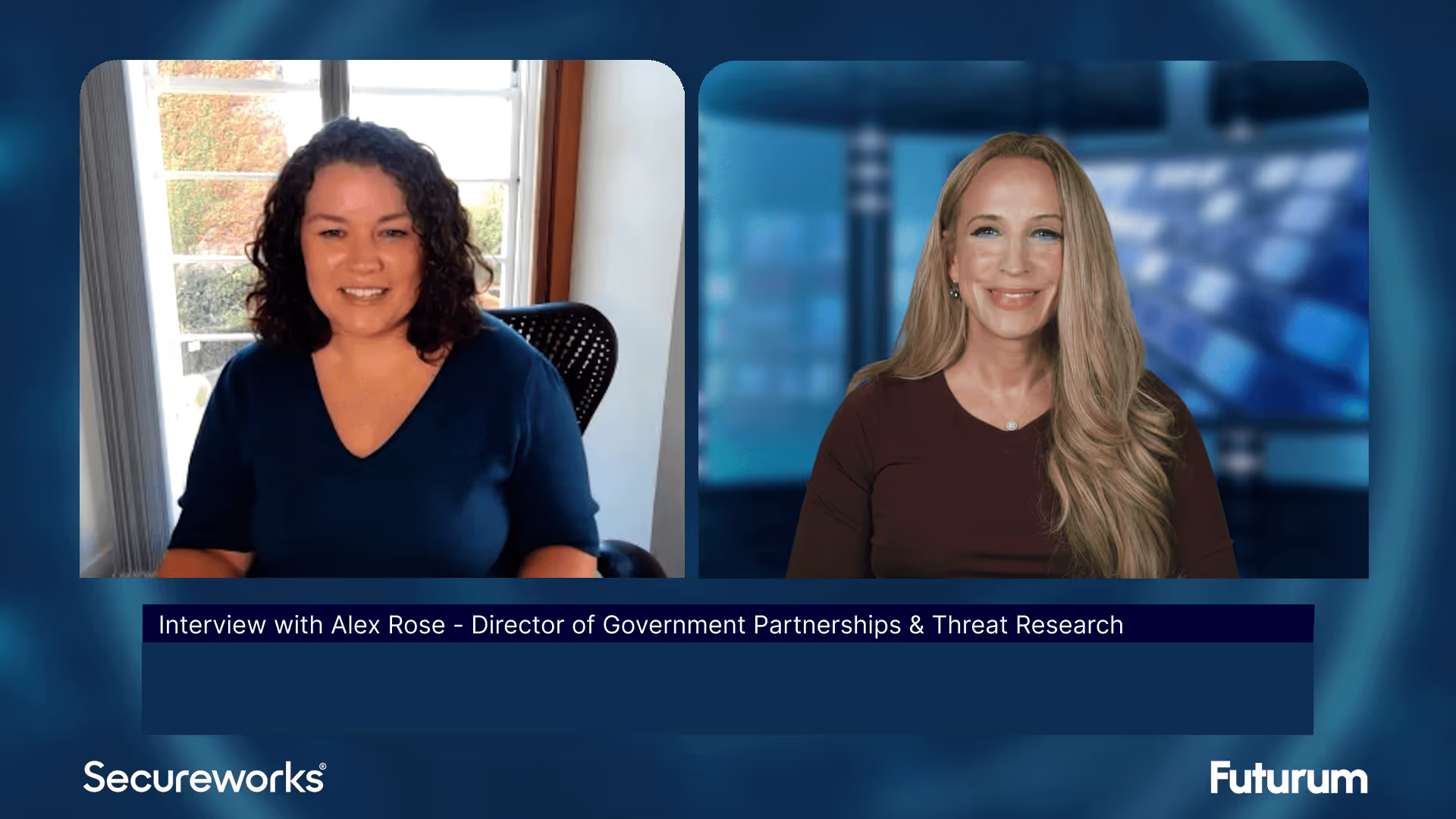
Threat Intelligence: Insights on Cybersecurity from Secureworks
Alex Rose from Secureworks joins Shira Rubinoff on the Cybersphere to share his insights on the critical role of threat intelligence in modern cybersecurity efforts, underscoring the importance of proactive, intelligence-driven defense mechanisms.
QUANTUM
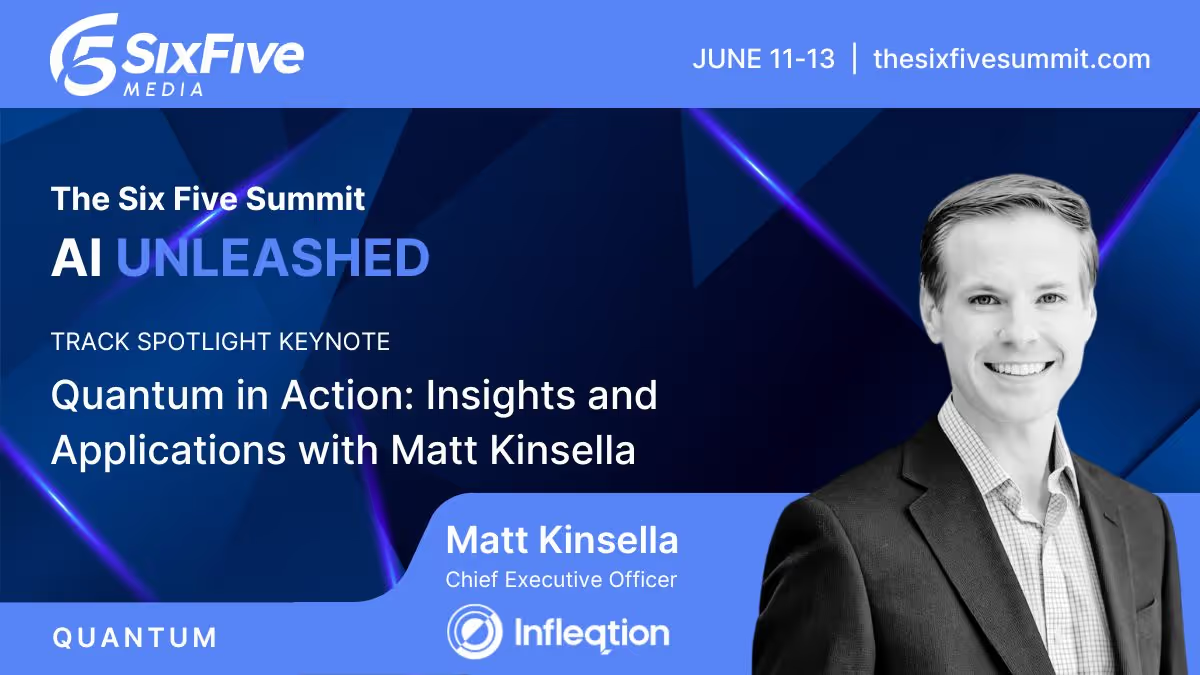
Quantum in Action: Insights and Applications with Matt Kinsella
Quantum is no longer a technology of the future; the quantum opportunity is here now. During this keynote conversation, Infleqtion CEO, Matt Kinsella will explore the latest quantum developments and how organizations can best leverage quantum to their advantage.
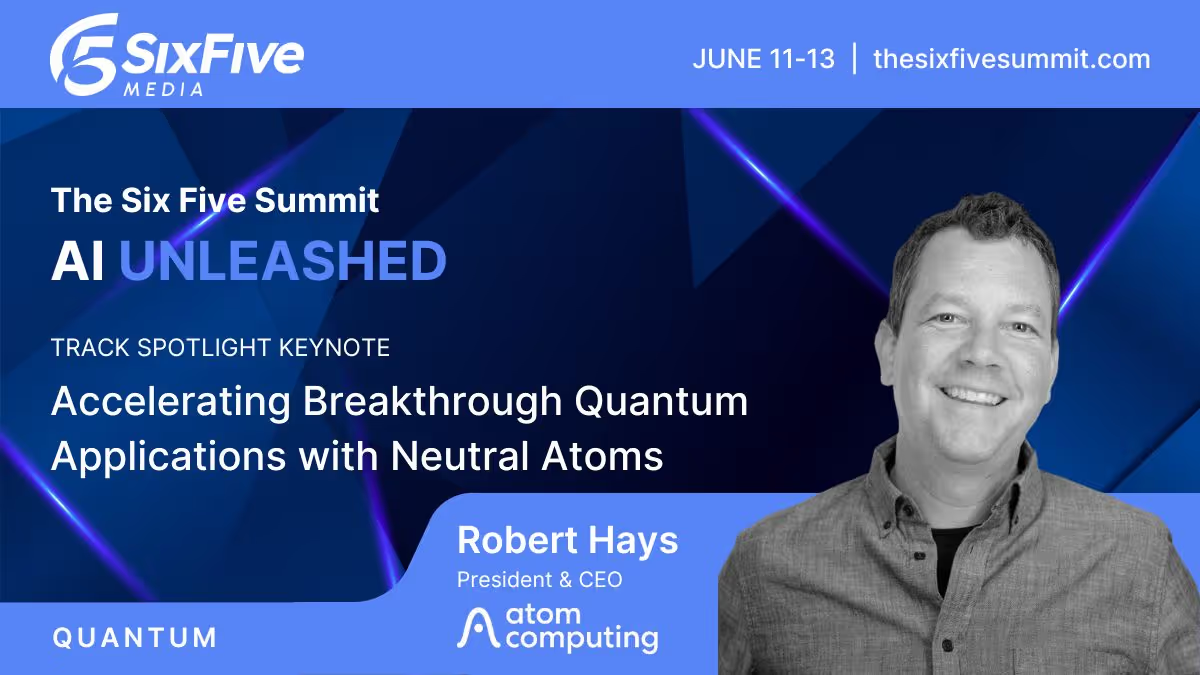
Accelerating Breakthrough Quantum Applications with Neutral Atoms
Our planet needs major breakthroughs for a more sustainable future and quantum computing promises to provide a path to new solutions in a variety of industry segments. This talk will explore what it takes for quantum computers to be able to solve these significant computational challenges, and will show that the timeline to addressing valuable applications may be sooner than previously thought.






